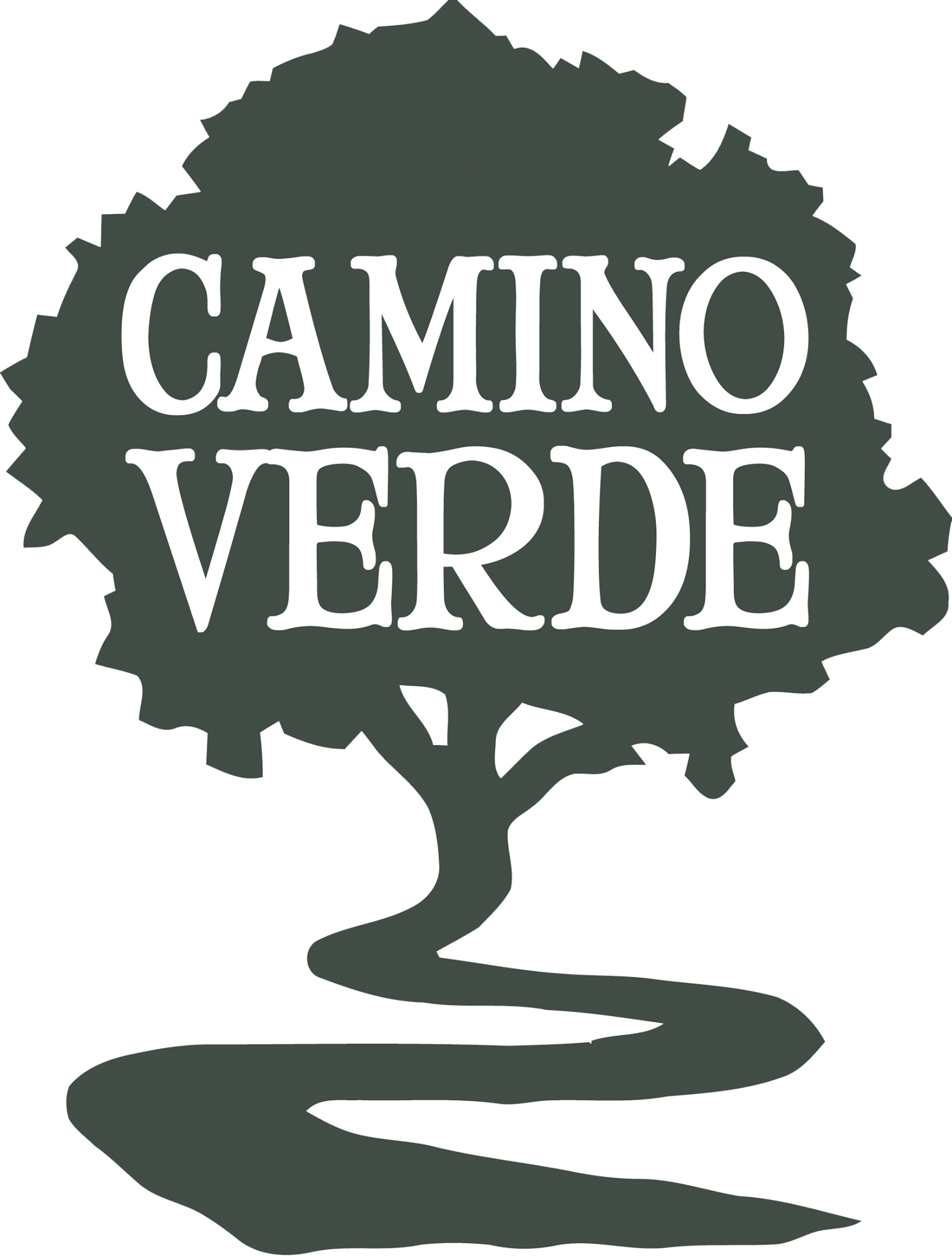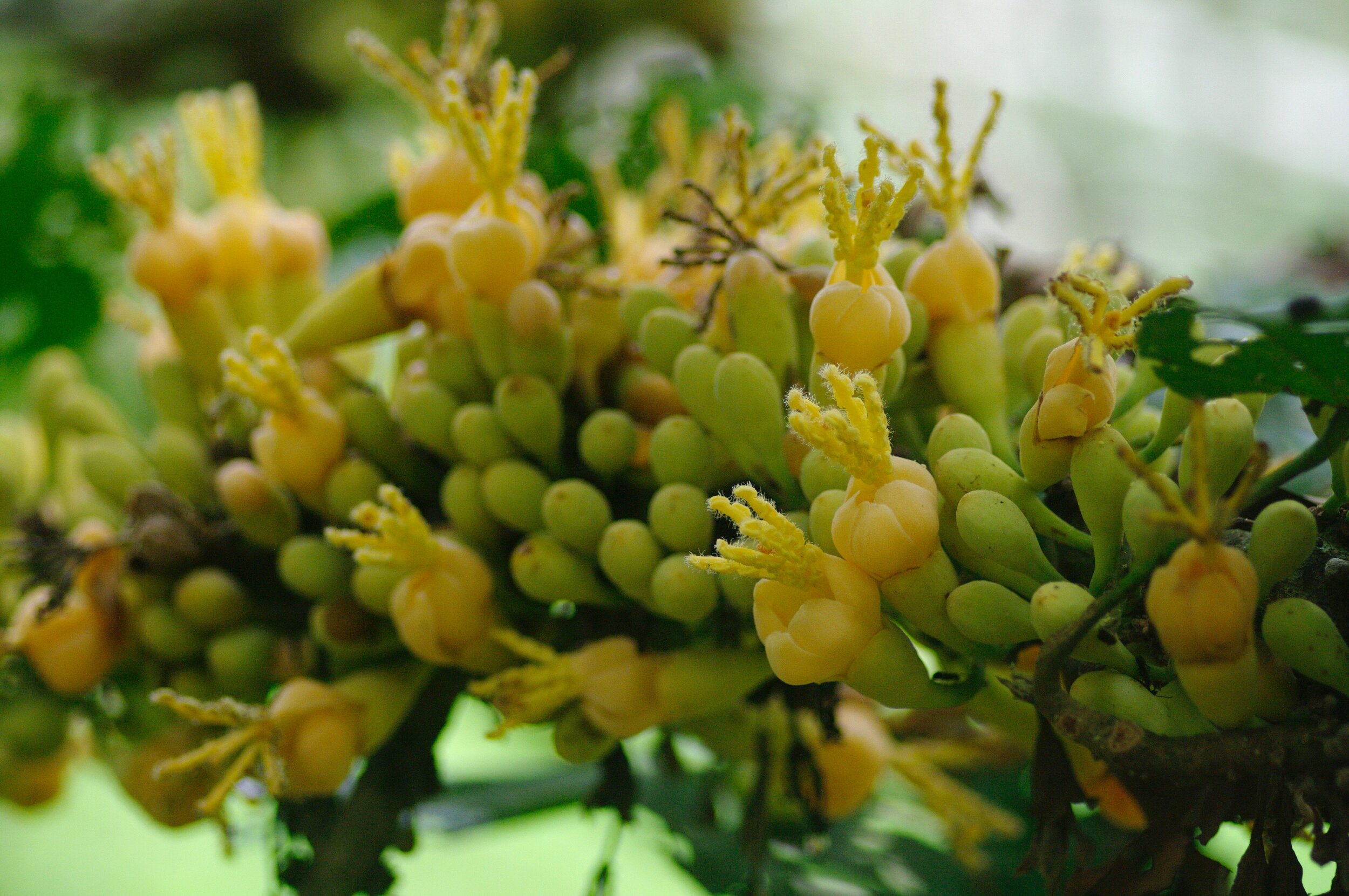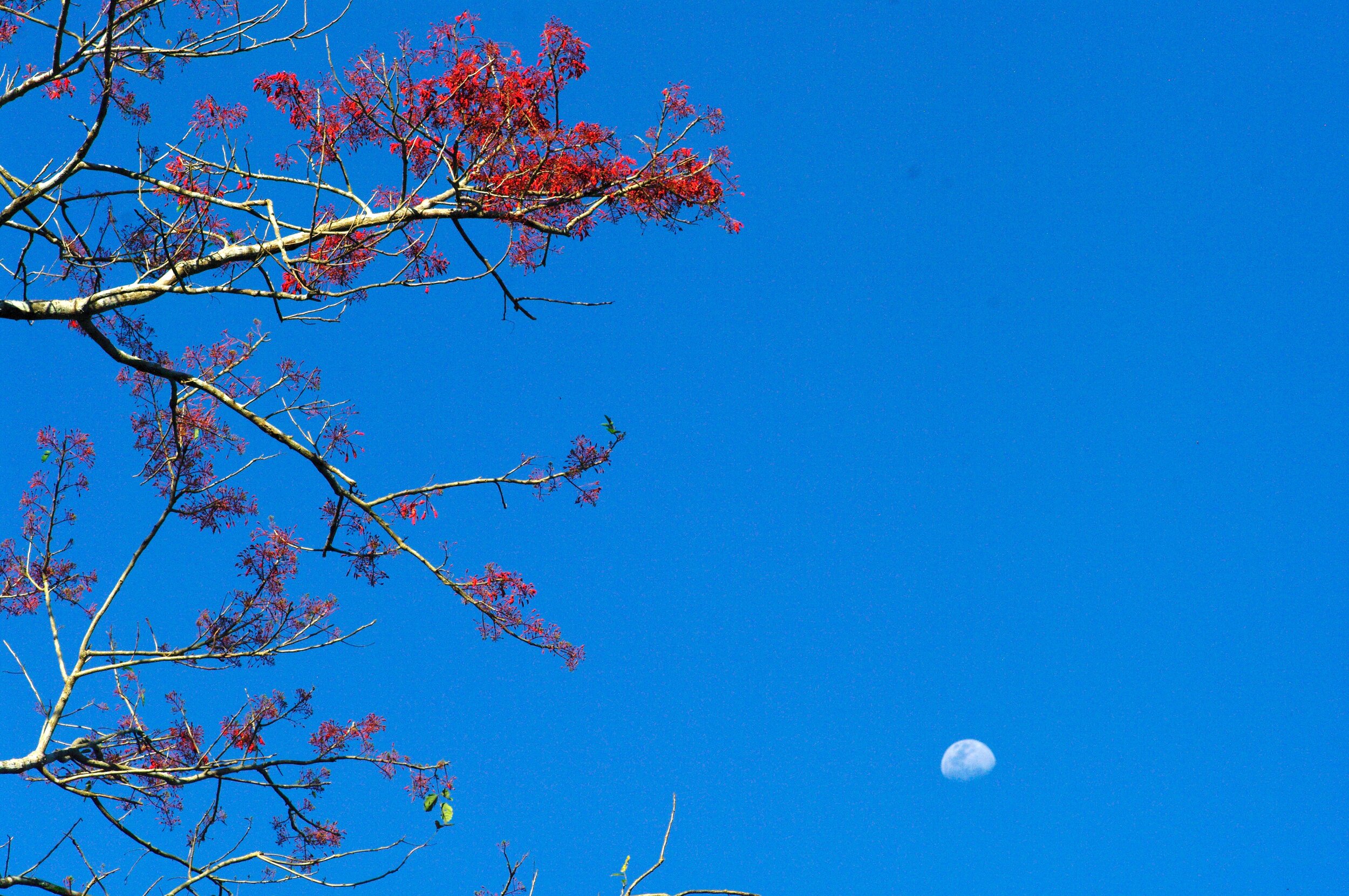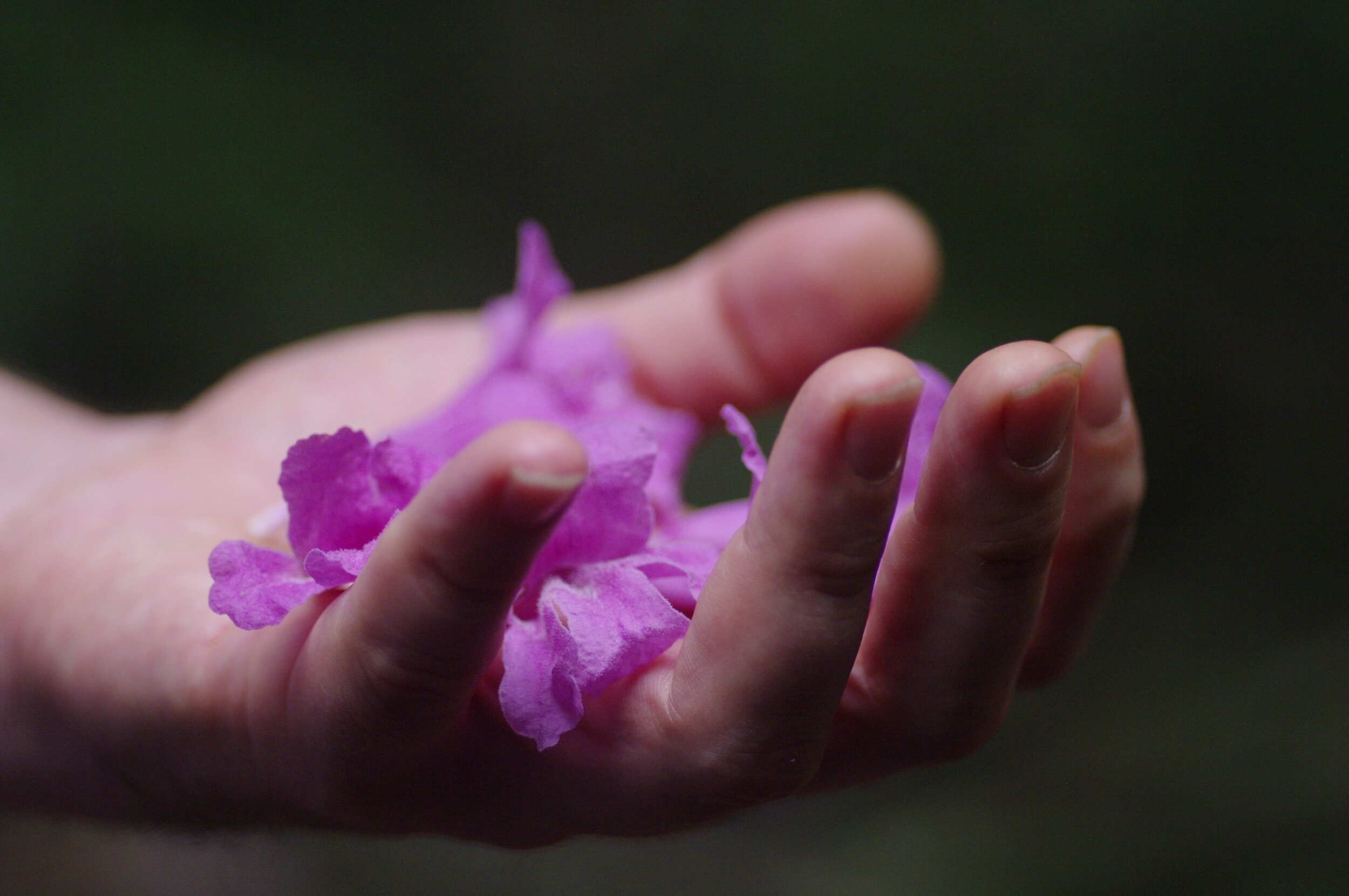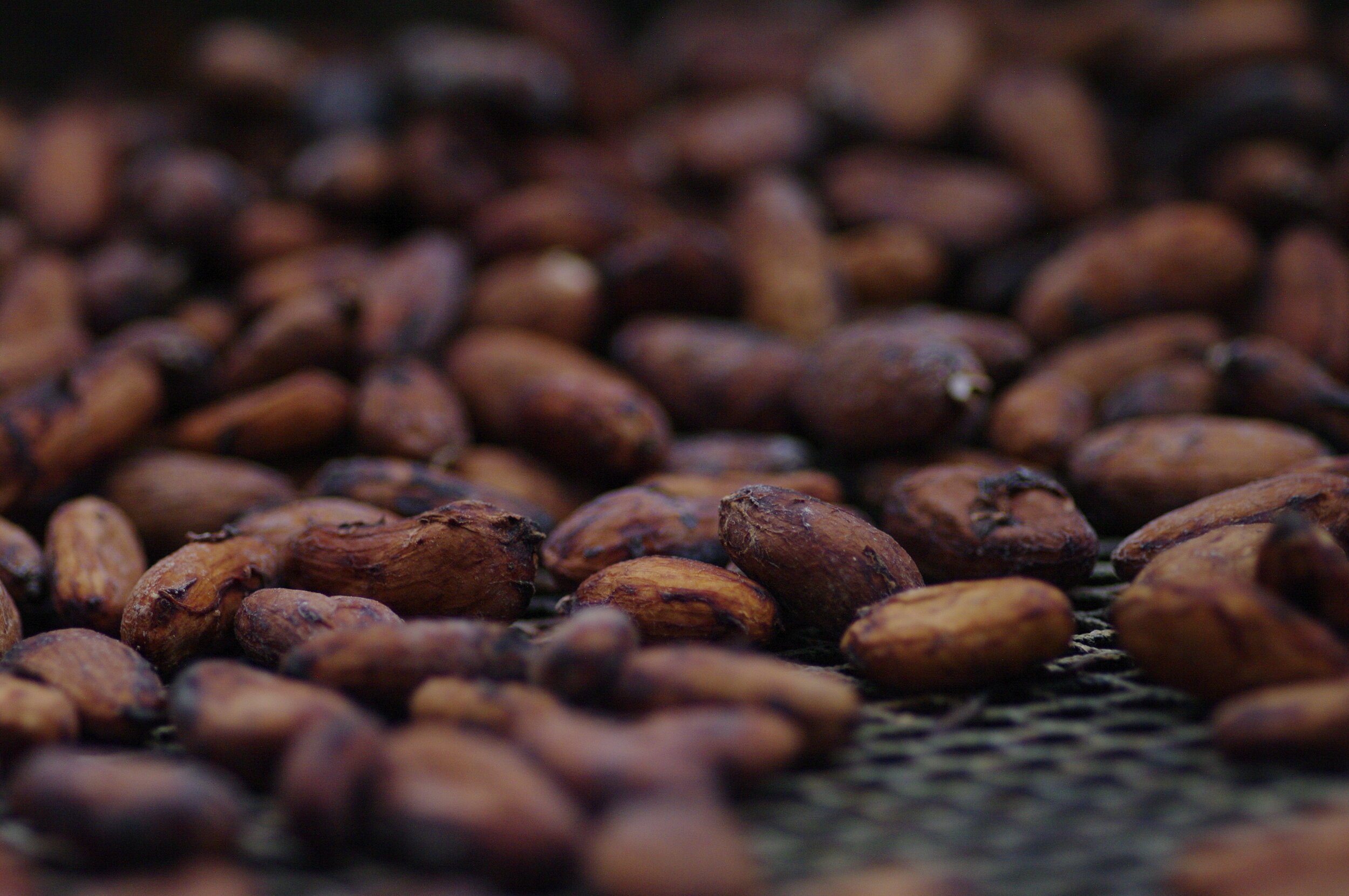Some Place in Peru
by Travis Feezell, visitor to Camino Verde and (at time of writing) Provost of Belmont Abbey College
He had on a Direct TV shirt and a backpack slung over his left shoulder. We had met him on the path, he traveling towards the compound and our party of five headed deeper into the jungle. Robin stopped and chatted with him for a moment. My Spanish wasn’t at a level where I could comprehend anything other than “fix” and “over there”. Our Direct TV man moved on, smiling at us and raising his hand in the universal sign of “see ‘ya later” as he continued his journey through the dense vegetation, gone from our view in a matter of steps, even on this worn and somewhat straight path.
Robin looked at us, the query of who and what and why on our faces.
“That’s the satellite guy. Our connection went out a couple of days ago. No internet.”
“Why’s he headed this way?” I asked, knowing that the boats and the river that brought us here were in the other direction. I assumed this is how everyone got... here.
“It’s easier to walk. He parks off the main road and then walks for about three hours. He’ll stay overnight with us or with a cousin across the river from us and head back tomorrow.”
Another moment of incongruence. Internet in the Amazon jungle. A Direct TV repairman walking miles to fix a broken satellite connection. And me, perhaps the biggest incongruence of them all. Where the hell was I? Why the hell was I here? And why was I so uncomfortable?
“HERE” was the Amazon rainforest in the southern tip of Peru, a span of land near the Tambopata National Reserve in the Madre de Dios region. A transplanted native of Massachusetts, Robin is the director of Camino Verde, a non-profit reforestation project he has led for the last decade. He’s comfortable here, that’s clear. His movements, his mannerisms – his comfort! – make him seem part of the forest itself. His words are soft and languorous but there is an intensity brimming at the surface which belies his efforts to heal this incredible natural ecosystem. He wears flip-flops on our treks, a loose t-shirt, cargo shorts, and a bucket hat. Me? I go for full pants and closed toe shoes. I remember from my third-grade film strip “Animals of the Rainforest” that there are snakes and spiders around here. I didn’t like them then and I certainly don’t like them now.
His passion is all the more admirable for the surroundings are truly remarkable. Thousands upon thousands of species – animal and vegetable – woven together in a universal spectacle, at least for me, a fifty-ish year old guy who’s been in the forest in North American and Europe, but nothing this verdant, this lush, this magnificent has ever been in my sight. Enormous leaves form a canopy above us. Robin points out the varieties of trees, their ages multiples of my own. He also points out groves of what seem to be perfectly aligned trees, all about the same size, all of the same kind.
“There, that’s Moena. We planted it about two years ago. It’s fast growing and regenerative.” He plucks a few leaves from the Moena branches and vigorously rubs them between his hands. “Here. Smell”.
He raises his hand to each of us in turn. I am last and I can tell from the others’ faces that they are sensing something entirely new. It is new, somehow separate from the thousands of other scents bombarding our senses in the jungle. The scent is mildly sweet but is also somehow tart and young and vegetal all at once. That one scent is what some of our party has come to chase.
In our intrepid band of four are Andrew, the young CEO of a natural soap company, and Andy, the company’s chief procurement and resource officer. Andrew has been here before, a wise traveler in many developing regions of the world and a passionate advocate for sustainability and conscious capitalism. He continues to seek essential oils and resources for his products. Andy is a global citizen, English by birth but clearly more at ease with a full rucksack and the undisguised worn clothing and tousled hair who’s been “here” and “there” before.
Both are comfortable. I am not. It’s not that I can’t be or won’t be away from it all. I’ve camped before, albeit with running water and a hot shower in the building just down the way. I’ve been through much of Europe and have been to all fifty states. But this is... this is “out there”. A flight to Lima, another to Cuzco, another to Puerto Maldonado. An air terminal that is more ramshackle Quonset hut than modern travel hub. A transfer from airport to longboat via motorbike and a crumbling four-seat van that’s seen better days over the mish-mosh of deteriorating streets that are more often dirt and rubble than smooth arteries of cement. Four hours upriver, the constant hum of the two-stroke engine taking us deeper and deeper away. Away from what? That question came to mind again and again as I tried to dampen images of Heart of Darkness and Apocalypse Now. A lunch of cold chicken, brown rice and a lukewarm Coke interrupts the image.
I was here with my colleague Grant, both of us investigating the opportunity to bring students from our rural Midwest college on an international field trip built around ecology and sustainability. Most of our students were from rural towns, some having never been out of the state let alone on an airplane. Two hours into the boat ride I sidled up to Grant and whispered, “This might be too much.” Grant’s eyes agreed. I was talking about the students but maybe Grant thought I was talking about myself. He wouldn’t have been wrong.
“Here, have a taste of this.”
We keep trekking deeper into the forest, this our second time. No Direct TV repairman in sight. I have no sense of direction as trails make their own serpentine way, following the paths of the four-legged rather than the two-legged. I’ve kept close contact throughout our walks in the forest, afraid of being stranded. The horrors of the Robinson Crusoe made-for-TV special in fourth grade haunt me. Google Maps won’t help here.
I take what Robin has offered, a large yellowish pod, almost like a fat squash from someone’s untended garden but less elongated and more plump in its center. He has cracked the pod in two and given one to me, each side filled with billowy mounds of off-white flesh. I don’t know whether to recoil or peer closer so I just stay still and investigate. The flesh itself is compartmentalized and separated, a reminder for me of spider’s nests in the wilderness. I hand it back quickly.
“No, really, smell it. Here.” His hands dive into the flesh and pull apart the milky white compartments. It separates easily and suddenly it is in my hands. It’s slimy, gross really, but I can sense something solid in the middle, a seed of some kind. Courage comes over me and I pull it closer and sniff. Sweet, floral, almost the scent of honey. It’s attractive.
“Go ahead. You can eat it.” Robin is testing all my senses out here. See this, smell that, feel this, taste that. Pretty soon he’ll be pointing out the sounds of the forest to complete the sense quintet! But for now, he wants me to eat this thing I’ve just picked up. Really? Robin, I’m already in the middle of nowhere and feel like I’m treading water without anchor in some deep sea. I get it, that you are the horticulture and forest expert that would likely survive out here for days with nothing but his bare hands. I should ask him if he’s seen Man vs. Wild or if he has been cast for the Peruvian version of Naked and Afraid.
He takes his fleshy segment and plops it in his mouth, obvious pleasure on his face. His wicked smile is both teasing and encouraging. I take a bite. It’s soft, almost like mango but not as fleshy or fibrous. The flavors are tropical but I taste hints of vanilla or caramel or... it’s something familiar behind the acid of tropical fruit but I can’t put my finger on it, something a bit darker and richer.
“It’s cocoa.” He says this matter of factly, like he gets this every day which he probably does but this is magical for me. I get bad chocolate bars from the grocery store for myself and often buy my wife something special on holidays but this is nothing like that. Maybe it’s because it’s the original, the mothership, the source of all our chocolate decadence. “The seed is the nib, that’s the part that gets roasted and ground into powder. Cool, huh? Can you taste it?” I can taste it and it is pretty cool. The OG Peru chocolate. I’ll never eat a Snickers bar again. Well, I will but it will set off a whole new series of questions.
Showers are cold water collected with the consistent rains. Toilets are latrines, holes cut into wooden benches high above a “collecting station”. Do your business and sprinkle some sawdust over. It’s mandatory. I wonder who makes the sawdust. I wonder who cleans the latrines. I don’t ask. Sleeping arrangements are Spartan. We four sleep in the same room, hard platforms and frayed sleeping bags, each sleeping space enmeshed by netting. I’ve never slept under netting before though I wished for it nightly one summer on the beach in South Carolina. I sense I am in a cage, a bubble. I’m protected from some danger outside my mesh walls. What’s attempting to get in? I don’t know.
But I hear sounds. Lots of sounds outside the cabin and into the forest. Rustling, animal steps, screeches, all of it startling and new. The forest never seems to go silent. Robin warns us to be careful if we need to use the latrine at night. Take a flashlight, make a bit of noise, don’t scare anything. Sage advice. I hold it all night. Every night. I don’t sleep much.
Dinners are simple, often lentils or some other bean and rice. An older woman cooks all the meals. I don’t catch her name and my minimal language skills and my general trepidation in this whole experience keep me from asking. I smile and say thank you, nodding my head in appreciation for her work. I take from some of the others in the compound that she is local, from a place nearby through the forest. She walks the paths each day to cook, sometimes bringing supplies herself, at other times gathering things from a boat on the river or Robin’s trips into Puerto Maldonado.
I’d love to understand the whole system of food supply. There’s no local market – I mean, the forest is a “market” itself but there’s no physical place just around the corner to buy groceries. Buying, selling, the context of market – it’s all out of my sense of understanding here. There’s no refrigeration, and the source of heat for cooking seems to be an inconsistent propane flame on something that resembles an oven and cooktop. And where does the propane come from?
There’s no phone to call the local propane guy when you need a fill up.
Pans and utensils are scattered about the kitchen and the preparation space for meals is a scant wooden cutting board that sometimes sits close to the oven but more often is at the dining table, a rickety slab of wood plopped down in the kitchen space. There are jars of spices and herbs, nothing I recognize easily until I spy a Sazon plastic container huddled in the back, dented not from use but because of the elements and the marginalization.
Meals are communal, everyone at Camino Verde at the table, really nothing more than a long and wide plank of wood on two stilts making eating all the more an adventure. A few chairs clutter on one side while a bench made for three but normally holding four persons is tucked in against the wall. Woe to the person who arrives late because the tradition is not to have those already there scootch in on the bench, but instead to invite the late offender to the middle seat. It’s not comfortable. I know because I arrived late a mere minute after the clang of the dinner bell. On one side of me was a sinuous Peruvian, on the other Andy who has pointy elbows. Fork movements had to be orchestrated carefully, my pause when they ate, my bites as they rested. By the third day I was moving quickly as soon as the first strains of the dinner bell hit my ears. I might also have figured out to stay near the kitchen at the right times.
And on that third day I cooked. The nameless kitchen mother and I had become fast friends. Perhaps my circular movements of appreciation around my stomach and knowing smiles had softened her. I wandered into the kitchen an hour before mealtime looking for a place of solitude in my still anxious state. She beckoned me to the stove, indicating an opportunity to smell and taste the beans. I tasted and then pointed at the bottles of herbs on the counter, a silent “can I add something?” clearly my intent. She smiled and opened her hands, the universal gesture of acquiescence. My path was clear and I shuffled my way through a few things, adding a little something green and leafy, another something brown-ish, a bit of salt – I knew what that was –
and new aromas filled the space. I beckoned to her to taste, seeking her opinion and seeking her approval. It was our love language.
On that same day we made essential oil, not really “we” but I counted in the group as we watched the process. At some point, I gathered a few saplings and put them in the correct pile. It’s what Andrew and Andy had come for. I didn’t know squat about essential oils aside from the small pristine bottles found at a Whole Foods or local boutique, but in looking at the apparatus in front of me it appeared we were making hooch or white lightning, albeit in the Amazon rather than the hollers of Appalachia.
The branches and leaves and basic cast-offs of the forest were crushed up in a chopper and then put into a vat to stew. And then the magic of distilling happened, gravity slowly pulling the oil and water apart, drip after drip, until a bucket at the end of a long spigot held a full liquid golden sheen. Andy was giddy. Andrew was satisfied. This would later go into his soaps and would be sold as a unique essential oil for diffusers and “peaceful moments” a few months later.
“Here, smell.” Really, again? This was getting old ... or maybe not. Robin lifted the bucket to all of us in turn. It was earthy, sweet, natural, like the forest itself, no bromides or synthoids or “oids” and “ides” of any kind when you read the label of a processed product. Amazing really.
“Feel it.” Robin, stop it. I dipped my finger into the vessel and gently rubbed it between my fingers. It disappeared, soaking into my grizzled skin immediately. Only the soft essence of the Amazon was left. I felt that without hesitation.
“It’s really part of a larger process. The oil is a by-product.” Robin was lapsing into his teacher mode. Maybe I appreciated it more this time. His expertise and confidence put me at ease. “We plant the seedlings and in five years time the trees will grow to maturity. We have to keep thinning the growth, taking the saplings underneath so all the sunlight and materials can be concentrated in one way. We’re racing to regenerate the forest.”
And there we were. Back to smelling and touching and feeling the world around us, this live thing in front of me that gave so much. Maybe that was my discomfort, encountering another living thing so vibrant and so foreign, so that rather than embracing it I had initially retreated. Maybe the forest was my teacher and Robin a talented translator, facilitator, and caretaker. He had embraced the living thing, the different thing. Fully.
I never got the opportunity to talk further to Robin, to query how he had arrived here and grown so comfortable, wondering if he, too, felt shy when first introduced to Queen Amazonia. Maybe for him it was love at first sight or perhaps a lingering romance, at first a friendship and then a passion. Either way, there was a deep and profound marriage between the two, one that seemed unbreakable.
We left the following day, back on the river in the other direction, a flight to Cuzco, later a tour of Machu Picchu, regular touristy things really where the surroundings and languages and food and toilets were more familiar. My anxieties lessened, my connection back to a “normalized” life helping to abate any dislocation and discomfort I had felt.
But it stays with me, this trip some months ago. It stays with me.
Why do we go away? Why do we travel? Fundamental questions I think and probably ones asked by many over the ages. But our answers change with our time and our age.
To see friends and family.
Because my parents made me.
To have new experiences.
Because my miles would have expired.
I was there already on business.
To get uncomfortable.
Our world is immense and we only inhabit a small tract within it. Our stories, our people, our habits, our language, our food. Our place. Only ours.
But what if it was not ours in the most profound sense of ownership and knowledge? What happens then?
As I grow older – not necessarily wiser – this may be the greatest realization and gift of them all, that what is “ours” is so limiting, that to be in the world of the unknown may be the greatest benefit to being human. To be uncomfortable and to come to something new through travel is to live more fully.
UPDATE – Since my visit to Camino Verde, much has happened in terms of the physical spaces as a fire destroyed many of the structures on the property. These have been rebuilt with significant upgrades to lodging for guests who are most welcome (and certainly encouraged!) to visit this magnificent region.
Travis Feezell is the Provost of Belmont Abbey College. At the time of his Peruvian adventure he was the President and CEO of Hastings College.
